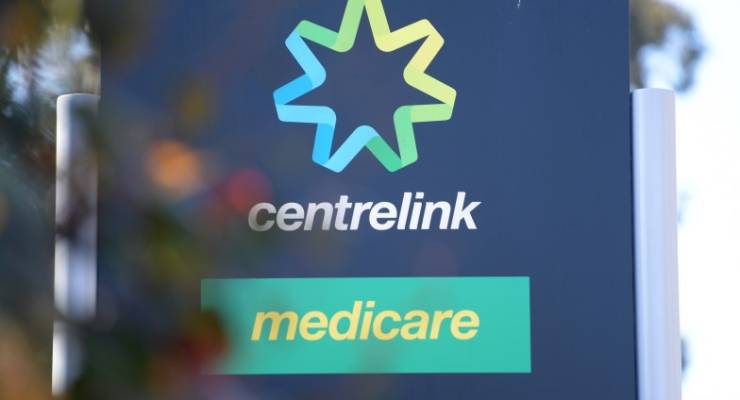
This morning, Greens Senator Rachel Siewert introduced a private member’s bill to increase Newstart and Youth Allowance by $75 a week. It is Siewert’s fifth attempt to raise the rate over the course of her 14 years in parliament.
Given Scott Morrison laughed the issue off last week, Siewert’s chances of success are slim to none. The likely bipartisan rejection is particularly galling when, in the 25 years since John Howard first froze the payment, people on Newstart ($275 per week) experience conditions far below poverty-level ($433 a week) while enduring brand new punitive measures like Centrelink “robodebt”, ParentsNext and cashless welfare cards.
Now, with everyone from the Business Council to ACOSS to Howard himself admitting that $39 a day simply cannot cut it for Australians in 2019, let’s review the excuses politicians have used to buck the issue, and will likely wheel out again today.
‘How good are jobs?’
– Scott Morrison, July 18 2019.
The most common excuse for ignoring the 700,000 Australians relying on Newstart is also the oldest: welfare is meant to be temporary. This ignores the fact that, according to ACOSS, 44% of people rely on Newstart for over two years, and 15% longer than five years.
Even if we take Treasurer Josh Frydenberg’s slightly sunnier version of the stats — that “two-thirds of the people on Newstart move on to a job within 12 months” — the “get a job” excuse ignores the fact there are only roughly 15.57 job seekers to every job vacancy, and that those job seekers with secure food, housing and time (that is, those not currently on Newstart) are generally better equipped to find work.
‘They don’t just live on Newstart alone … and 99% of people on Newstart are also on other payments’
– Scott Morrison, May 13 2019
The next common argument against increasing Newstart is that, with biannual indexing and supplementary payments, recipients are basically living it up.
But as Deloitte Access Economics outlined last year, Newstart is indexed to prices, rather than wages like the age pension. This means that while the pension has roughly doubled since 2000, Newstart has barely budged. Last September saw a “laughable” $2.20 increase.
While Morrison is correct in noting that almost everyone on Newstart receives a supplementary payment, The Guardian’s analysis of Senate estimates found that 51.9% of recipients only received an extra $7.30 per week from minor supplements; 28.4% received approximately $55.18 per week with rental assistance; and roughly 20% of people on the family tax benefit received an extra $200 per week.
For most Newstart recipients, total welfare amounts to just $40 a day. Morrison and co would know this, having fought against including welfare recipients for a $4.40 per week energy supplement.
‘We’re in a $10 billion deficit … so I don’t think you can all of a sudden go oh let’s make whoopee‘
– Scott Morrison, September 26 2018
Last year, Morrison argued there simply wasn’t room in the budget to increase Newstart by $75 a week. Doing so would constitute a $3.3 billion move that would provide a $4 billion return to the Australian economy on the back of increased jobs, taxes, and wages.
Morrison’s budget argument ignores the fact that the government had room for $95 billion in tax cuts for middle- and high-income earners, a far larger loss of revenue which would overwhelmingly benefit people less likely to return money to the economy. The government also found $400 million to squeeze $500 million out of welfare recipients with robodebt.
‘I could live on 40 bucks a day knowing the government is supporting me with Newstart to look for employment’
– Julia Banks, May 2 2018
As anyone outside of a political party would be able to admit, this is a tall claim — even the Business Council said so. BCA head Jennifer Westacott went so far to say that it would be “impossible”.
‘The ball is in the Morrison governments’ court’
– Shadow treasurer Jim Chalmers, July 15 2019
Labor was always tepid on the Newstart issue under Bill Shorten — promises for a “review” satisfied exactly no one — but two months after the party’s election loss, Anthony Albanese and Jim Chalmers are still shrugging off real action as being the Coalition’s responsibility.
Compare and contrast this with an area in which the party has shown ambition, such as shadow energy minister Mark Butler’s holistic energy package aimed at a 45% carbon emission reduction target for 2030. Predictably, the policy created a large target for a Coalition during the federal election, but Labor pushed it anyway due to support from the industry it aimed to help.
‘This is a stunt by the Greens … It won’t pass the parliament’
– Labor Senator Anthony Chisholm, August 16 2018
Labor’s final excuse gets brought out basically every time Siewert proposes a bill or motion to raise Newstart. It was repeated by Albanese last week, even while otherwise calling for the Coalition to raise the rate. It cuts to much of the frustration over advocating progressive changes within a deeply conservative parliament.
As with energy policy, there is a stark contrast between Labor’s Newstart malaise and the party’s genuine leadership on, for example, the banking royal commission. The party swallowed its pride, joined the Greens after rejecting earlier bills labelled as “stunts”, and kept at it for years until it finally wedged the Liberal Party with the Nats’ help. It was a similar story with marriage equality.
Siewert is almost certainly going to go home today 0-for-five. But as the royal commission demonstrated, when Labor drops politics and joins nominal allies — not just the Greens but Barnaby Joyce too, if his latest newsgrab can be believed — it is absolutely possible to pressure the Liberal Party into accepting sound policy.
What will it take for parliament to acknowledge the crisis in Newstart? Send your thoughts to boss@crikey.com.au. Please include your full name.








It will be interesting to see if Labor will ever return to its socialist roots instead of pandering to its wealthier donors to Party coffers.
Their Newstart policy failure, refugee protection failures, taxation surrender, etc. indicate that their concern for the hoi polloi has completely evaporated in the cosy warmth of self interest and in face of the demonic fires of the commercial mainstream media.
Just more conscience-free career politicians.
We need to find and elect people of far better principles and ethics.
Albanese increasingly demonstrates why his colleagues rejected him for Shorten in 2013.
A high percentage of pollies, across both Houses, need to read the definition of a Democracy.
Briefly, it says — Elected representatives form a government to represent the people.
They are not there to represent themselves, their party, or any of their corporate mate or high $$$$s donors.
No. It’s the people they must first represent. That’s their “Terms of Employment”. It’s in the definition of a Democracy and in our Constitution.
Treating people on Newstart in the way they do is not representing the people. It’s representing a “Mean and Soulless” attitude which is not in the Australian character !!
Can we bring the next Fed election forward to next September ???
“….outlined last year, Newstart is indexed to prices, rather than wages like the age pension.”
Not a word reminding that since then, the Age Pension is now indexed to prices (CPI)!
Yes Morrison did that, he “came after our money” not only as above but also “Threshold percentages”.
Amazing silence from yourselves and Labor on change of indexation of Age Pension.
I was comment the same, I have read this link of pensions to wages twice today and thought it was incorrect. Not that that is that much better. I wonder if most people are unaware of this fiddle of morrison’s though.
Why can’t we both help people find a job and increase Newstart. It doesn’t have to be either/or Prime Minister.
Labor also knows there is not enough sympathy for an increase in the voting public ‘ “dole bludgers” and all that so they can’t run hard on the issue.
It’s OK for the gov’t to buckle to the demands of retirees but not to allow the unemployed to live decently.
If, as it presently appears to be, there are more than 13 job seekers for every available position, then your posit is invalid.
“Jobs” are not the answer – especially jobs as defined by profit seeking industries.
Only a stable, liveable and undefilable income is equitable.
The country can afford to care for everyone but only if those who benefit the most from the current economic structures are prepared to share a greater portion of their gains with the community as a whole.
I’m all for finding people a job. In theory. Unfortunately we’re in an environment where jobs are disappearing and the rate of joblessness will increase dramatically in the near future. Some European countries are already exploring the UBI. Our pollies are, intellectually, still at the ‘dole bludger’ stage. They prefer to crow about the ‘growth’ in jobs, using 1 hour work per week as a benchmark. It is really time we all grew up and faced the future with solutions to cope with the world as it is, not some fantasy of full time jobs for all.
When Frydenberg says ‘two-thirds move on to a job’ does he mean a secure job or does he mean they become a statistic as technically employed? Because a person needs to only work one hour a week to be regarded as employed. I suspect Frydenberg is being overly cute with terminology.
“When Labor drops politics and joins nominal allies… it is absolutely possible to pressure the Liberal Party into accepting sound policy.”
So much this. Labor is so obsessed about resisting the Greens that it misses multiple chances to win useful social changes. A hint to the ALP: the Greens exist and thrive basically because you keep disappointing on progressive issues. Try achieving something progressive and you might be surprised with the results.